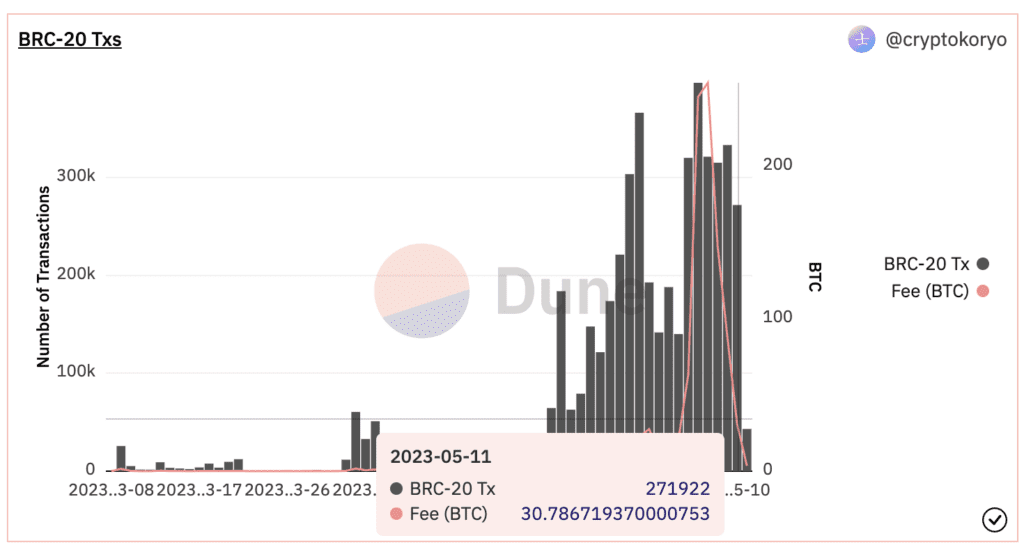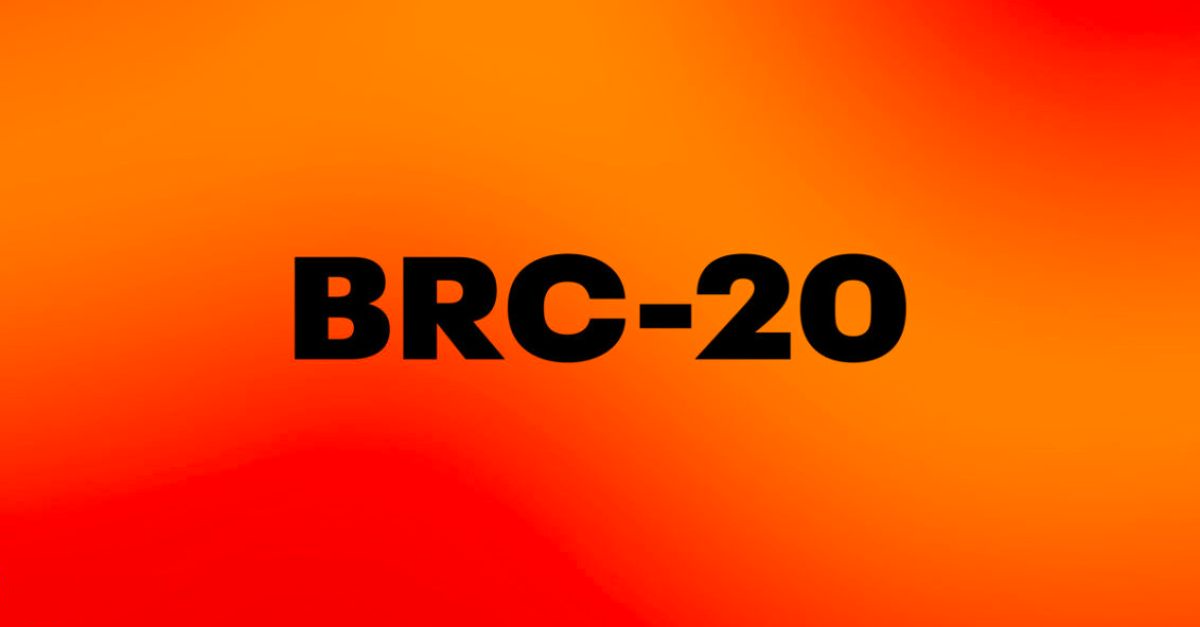Dune data shows that on May 11, BRC-20-related transaction fees (minting, transfer, and deployment) fell to 30 BTC, a decrease of 88% from its peak value on May 8.

Such fees have now fallen for three consecutive days. Additionally, transaction fees on May 11 only accounted for about 15% of all Bitcoin transaction fees on that day.
Memecoins, which have gained immense popularity in recent years, are starting to take over the Bitcoin network. Meme coins like PEPE and WOJAK have clogged up the Ethereum network and new BRC-20 tokens are now impacting the Bitcoin network.
These new meme coins are minted according to the standard. The daily coin cost on BRC-20 hit an all-time high of 255 BTC on May 8, according to data from Dune.
The total market value of the tokens exceeded $1 billion as of May 9.

The BRC-20 token standard is a new kind of fungible token that uses Ordinals and Inscriptions to construct and manage token contracts, token mining, and token transfers on the Bitcoin backbone.
Ordinals is a numbering system that assigns a unique number to each satoshi, 0.00000001 BTC, making it possible to monitor and transfer it. Meanwhile, the “inscription” process adds a layer of data to each satoshi, allowing users to build unique digital assets on the Bitcoin network.
Domo, a Twitter user, created the BRC-20 token standard on March 8. Currently there are about 14,300 BRC-20 tokens in use on Bitcoin, with an estimated 400 million tokens in use on Ethereum.
The Bitcoin network has seen its biggest congestion in years due to an increase in activity linked to Ordianals and BRC-20s, resulting in a backlog of transactions due to limited block space available. According to Mempool data, there are currently more than 287,000 unconfirmed transactions and memory usage has reached its limit.
DISCLAIMER: The information on this website is intended as general market commentary and does not constitute investment advice. We recommend that you do your research before investing.

